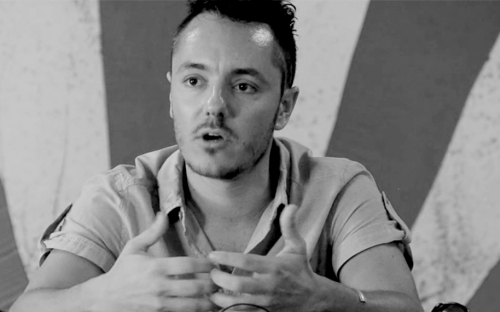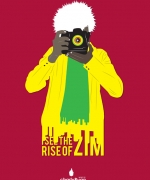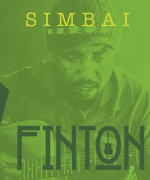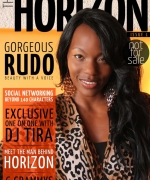Women in Hip Hop
Comrade Fatso
Definitely, no this, it is a key thing, one of our headline acts Andretta Tshuma is a woman, she is a poet from Botswana. She's the headline act on Friday night alongside Akala and also actually for, you know, for the festival we had, we had aim to bring in Sheldon Petal, an amazing woman poet, female poet from Kenya. We had also approached Lebo Mashile from South Africa, they both had scheduling conflicts. But I mean it is something that we do see; I mean a key role for us to play is to encourage the participation of young women in spoken word and hip hop. We make sure that every event we have there are, we will always have representation of female; of young female poet or spoken word or hip hop artist and this will be true at the festival at the events that, were are throwing Andreatta would have been on this panel but she only arrives on Friday but we have been made, there have been very deliberate attempts for the main concerts that are happening to you know, for the inclusion for some of Zimbabwe's up coming and some of Zimbabwe's best hip hop artists and spoken word artists, there are women.
The Poetry Slam that we are doing on Thursday is also quite balanced you know, we’ve got a female poet from Kenya, female poet from Botswana, female poet from South Africa, female poet from Germany. So, there is definitely an aim of always to try and; always to try and keep it balanced to encourage more young women to get involved in spoken word and hip hop because there are definitely very few. And funny enough, there are less women, there are less young women involved in hip hop in Zimbabwe than there are in spoken word. It’s easier for us to get young spoken word artists on board than there are to get young women hip hop artist on board and this is, it’s also I think to do with how the culture is viewed here. When we started the spoken word movement there weren’t preconceptions about it; it was quite open and we had a lot of young women and young men participating. Whereas, hip hop is still seen you know, as quite male dominated and that maybe a reason that young women tend not to participate in it that much. But we hope the likes of Andreatta giving talks and workshops with Leena giving talks and workshops of getting more; of getting more and more involved, definitely.
Akala
The funny thing I wanted to add on to that when you said the funny thing about hip hop becoming the poster child from misogyny in the western world is that; ironically, one of the things that hip hop was doing when it came out in the late eighties and if you look at many of the big rappers from say 87 to 96 there was much more female representation in hip hop during that period than there was say, in guitar music. I can’t recollect any wholly female guitar bands that are among the big groups but when you look at Sister Soldier, you look at Lauryn Hill, you look at Queen Latifah, MC Lyte, you look at Salt N Peppa there were, I’m not saying there was no sexism in them – let me be clear but they were accepted by anyone who knows anything about hip hop as great MCs. The fact they were women. So, it’s very interesting what the perception of hip hop is. Even in the UK you know, my sister was one of the biggest MCs and there was a lot of sexism in at the time but, she proved to hold her own, right cool and she became one of the biggest MC before she started singing and all that and so actually, this culture has always tried in my opinion, when it’s the culture, not the corporate, not the commerciality of it but the culture has, women have been a very very strong force. I wouldn't say it because of men because it’s not, women have been a very strong force in demanding representation in hip hop culture and however continues but I think the means to be in places where they were not exposed perhaps so much to that generation of hip hop in case even UK to them. That period almost needs to be revisited to show young women look you can do this there has been, this has happened before you have been respected and many of maybe your favourite singers came up this way you know, Mary J Bilge you know, hip hop/soul singer, she came very much like a hip hop even or actually, Aaliyah, that whole dress code Aaliyah came with, that was a female b-girl hip hop inspired dress code and so I think that it’s really about the historical context as well, women have been a massive part of this all.
Hired Gun
I also would add to that too but unfortunately and I feel like as similar to how I feel, race is not going away if it’s just black people who are speaking race, other races have to be speaking about it as well. Discrimination against people that are LGBT, homosexual actually be speaking about it has to be others as well. There’s actually a lot of really amazing hip hop artists even today, even people like King Greg there’s a few but the issue is that we have to, I mean as men doing our job of being okay, look check these MCs out. There is a term thats thrown around in the culture a lot, real recognises real or skill recognises skill. It didn’t matter if you were a male or female, if you are nice on the mic, if you are nice on the turntable, if you can get down and break that’s whatit was, so that’s what it is but as these kind of other interests that kind of perverted cultures kind of separated now it’s like, oh well if you are a woman you have to be Nicki Manaj and if you are not Nickie Manage then you are going to be ignored even if there is tonnes of, there’s an amazing MC Invincible from Detroit one of the sickest MCs on the planet, pardon that had nothing to do with anything but you will never hear about Invincible because Invincible doesn’t use her gender as a selling point for sexuality, so, because of that, she’s gonna get ignored and i think as a culture as a whole both men and women just kind of cut apart yo, need to take at a look at these individuals.




